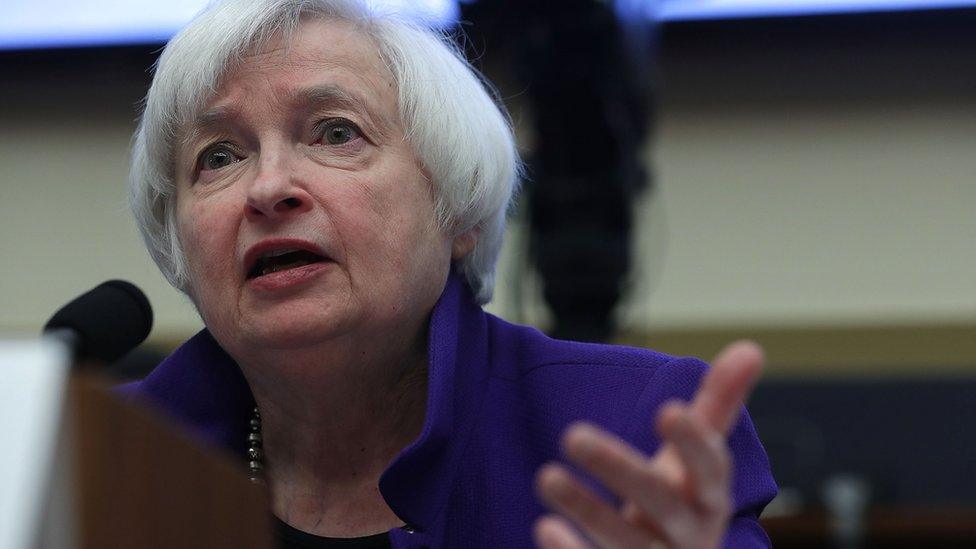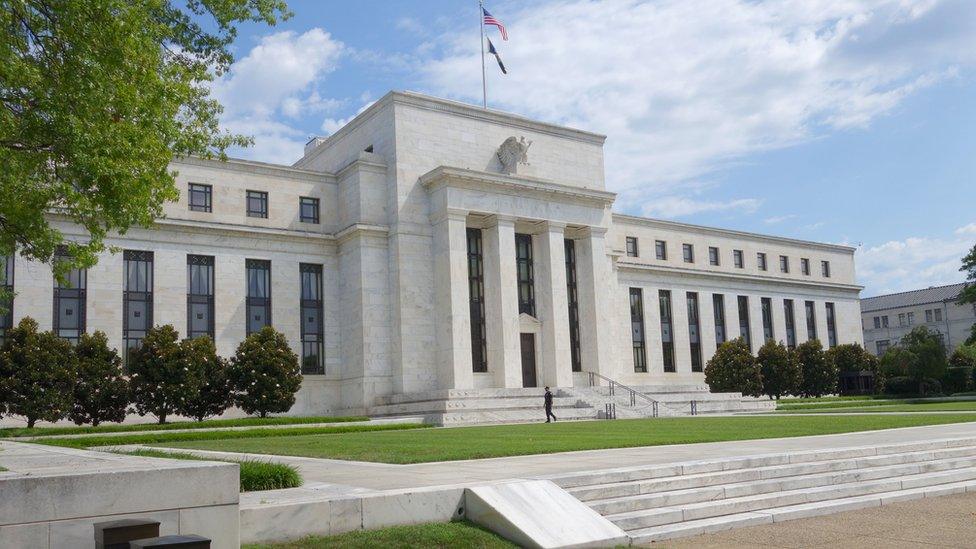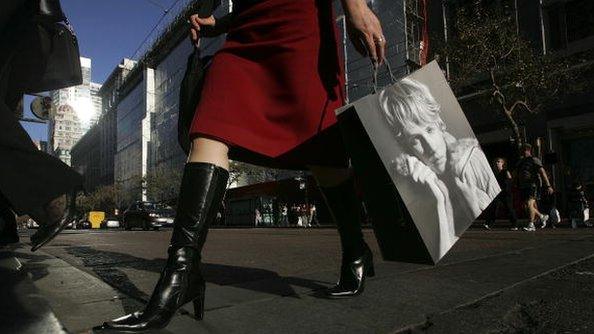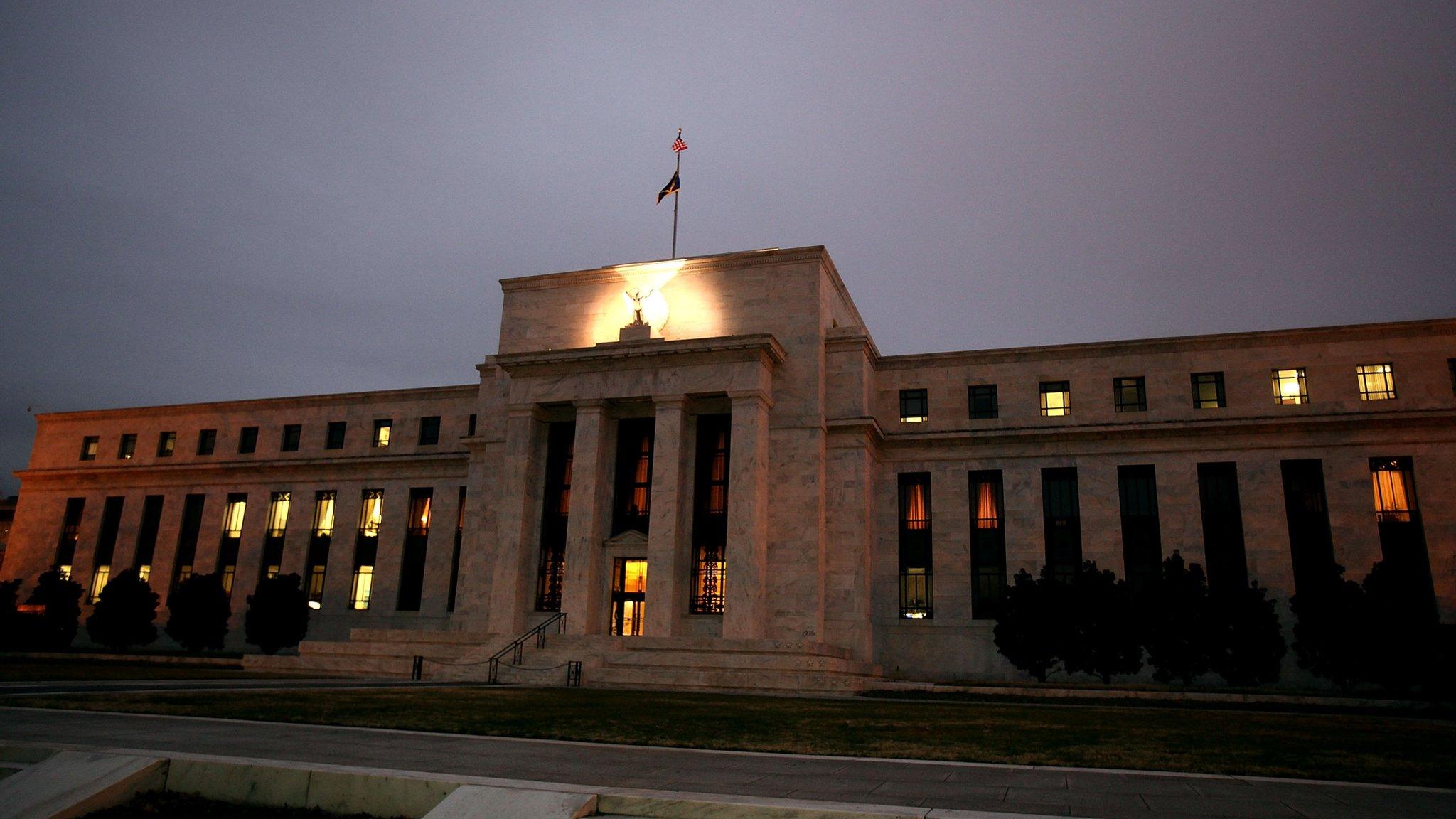Federal Reserve keeps rates on hold ahead of election
- Published

The US Federal Reserve has kept interest rates on hold but kept the door open for a rise in December.
The central bank's interest rate-setting committee had not been expected to take any action less than a week before the presidential election on Tuesday.
However, the Fed said the case for a rate rise "continued to strengthen".
That means it could take action next month when the committee gathers for its final meeting of 2016.
"The committee judges that the case for an increase in the federal funds rate has continued to strengthen but decided, for the time being, to wait for some further evidence of continued progress toward its objectives," the Fed statement, external said.
Markets were little changed following the announcement, with most analysts expecting the bank to raise borrowing costs at the December meeting.
Federal Reserve chair Janet Yellen is due to hold a news conference after the meeting concludes on 14 December. That will allow her to explain any action the bank takes and perhaps give guidance on how many further rises can be expected next year.

Analysis: Michelle Fleury, New York business correspondent
America's central bank looks poised to raise interest rates in December.
Only a nasty economic surprise would stop it this time - so what might one look like?
In the statement from the Federal Reserve, the one word missing from the list of risks facing the US economy was "election".
With just days to go, the Fed was never likely to stray into politics. But Fed chair Janet Yellen has already been criticised by Donald Trump for playing politics by keeping interest rates lows to help President Obama and his Democratic rival Hillary Clinton look good.
And yet various indications in the US have made clear that investors are worried.
The so-called "fear index", the Vix, has been at its highest level this week since the Brexit vote in late June following recent developments involving the FBI and Hillary Clinton's emails.
Clearly a Trump victory is something that could shift the trajectory of financial markets - and possibly the course of US monetary policy.


Ian Shepherdson, chief economist at Pantheon Macroeconomics, said: "Only a shock - the election of Trump, or an external geopolitical or market event - can now prevent a December hike."
Brian Jacobsen, chief portfolio strategist at Wells Fargo Funds Management, agreed that December was "the most likely scenario" for a rise in US interest rates.
Two committee members called for an immediate rate rise, but that was one fewer than had done so at the last meeting in September.
The Fed policymakers said the US economy had gained steam, with job creation remaining solid, and were more confident that inflation was moving towards the bank's 2% target.
Inflation stood at 1.5% in September, according to official figures.
The Fed last raised rates, to a range between 0.25% to 0.5%, last December - its first move in almost a decade following the financial crisis.
- Published28 October 2016

- Published12 October 2016
